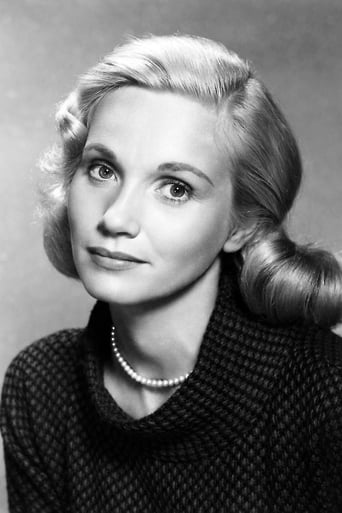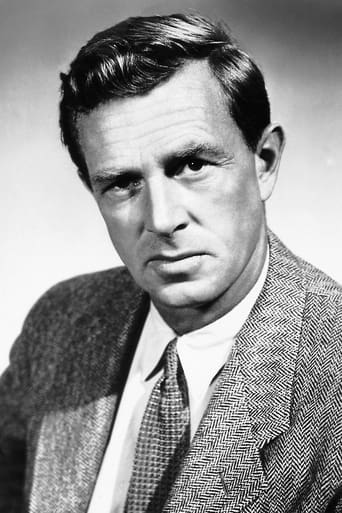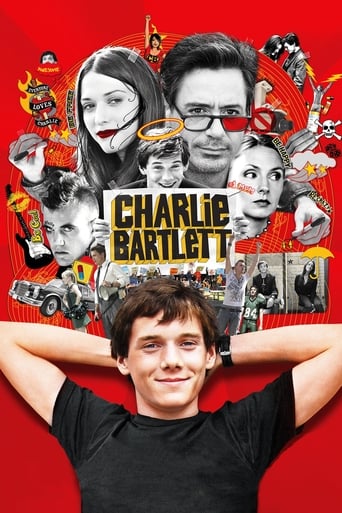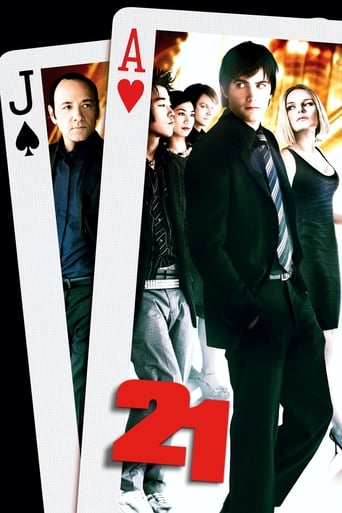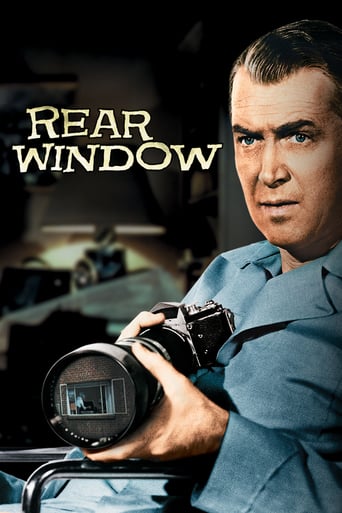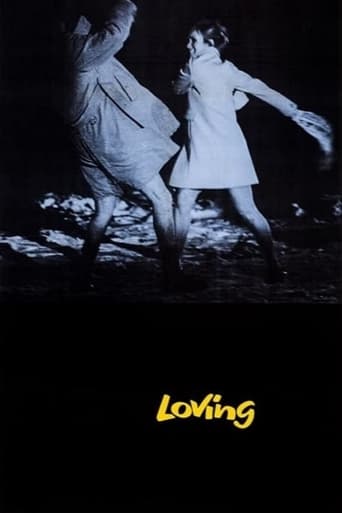
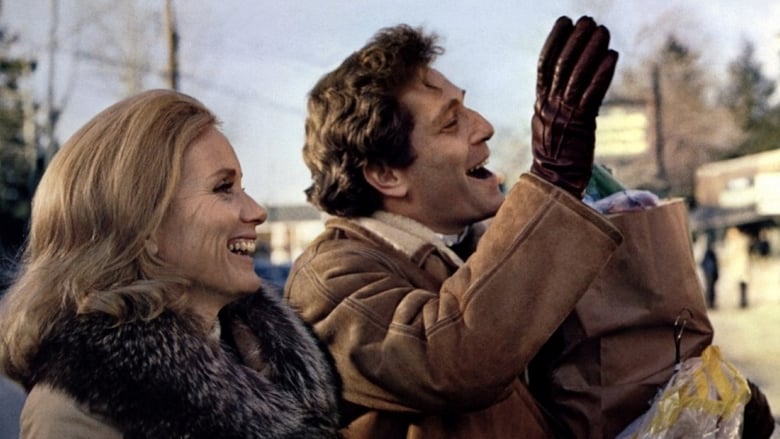
Loving (1970)
Brooks Wilson is in crisis. He is torn between his wife Selma and two daughters and his mistress Grace, and also between his career as a successful illustrator and his feeling that he might still produce something worthwhile.
Watch Trailer
Cast


Similar titles
Reviews
I know that movies about alcoholics aren't implicitly bad. I know that movies about people obviously headed for ruin aren't implicitly bad. I know that movies from the seventies aren't necessarily bad. But up until the last scene, I found the movie irritating. I'm sure that that is probably some of what the director wanted: we're supposed to be irritated by the stupid things the characters do, we're supposed to be irritated by all the same things that get under the skin of Brooks Wilson. Somehow though, the irritation wasn't translated for me. It was dumped directly into my veins without any intermediary.I think that it's mostly because it's a seventies movie and I find so much of seventies movies tiresome. As soon as I started watching it, I found myself gritting my teeth as I saw the city streets and all the late sixties and early seventies cars and clothing. I know that the movie has value and it was probably a very interesting film when it was released. And I think that the ending makes it worth it, but only just.If you can see past the seventies style or don't have the negative reaction that I do, you will find it much more enjoyable. If you don't like seventies movies, you probably won't like this one either.
In the wake of Bob & Ted & Carol & Alice came a string of similar sex comedy/dramas including Loving. George Segal was on a role in the late 60's/early 70's, but this is one of his lesser known efforts from the period. And seeing how few votes this movie has gotten here on IMDb, it's still quite unknown despite being available on DVD since 2003.The film has a typical plot of it's time: successful man throwing away his perfect life with wife and kids with his unfaithfulness. Eva Marie Saint who plays his wife is far more attractive than the woman he's seeing on the side, so it was hard for me to feel any sympathy at all for this guy. A young Sherry Lansing (the future Paramount producer) shows up in a small but memorable role, looking like the twin sister of Raquel Welch. She should of played the "other woman" instead, we would of understood why he was cheating on his wife a whole lot more. Not only did Lansing's career end not long after Loving, but the actress who played the other woman, Janice Young, vanished completely after Loving, as did the other major actress in the movie, Nancie Phillips. Neither of their IMDb listings list them as being deceased, so i'm definitely curious as to their whereabouts.One major reason why this movie deserves more attention is that it now possesses more historical importance than ever before. As noted in the trivia section, there's a scene that takes place at a construction site, and that scene was shot on location at none other than the World Trade Center construction site, of all places.
George Segal (not as scruffy as he typically had been at the start of the decade) plays a troubled husband and father suffering through career uncertainty who cheats on his wife (Eva Marie Saint, cast yet again as a doormat-spouse). Segal is an affable screen presence, but we never learn much about what makes him tick, what causes him to hurt the ones he loves. Talented director Irvin Kershner hit a few snags in his career; here, the semi-improvisational ground he's treading desperately needs a center, or a leading character we can attach some emotions to. The dramatic finale is well-realized, and Segal's comeuppance is provocative and thoughtful--at least something is HAPPENING; overall, it's a cynical slice of the marriage blahs, one that probably played a lot fresher in 1970 than it does today. ** from ****
In the great Jean Renoir classic "Rules of the Game", a character played by the director himself comments that "everybody has his own good reasons." This rightly has been taken to be the great humanist director's basic philosophy of life. Seeing, over and over again, this understanding, non-judgmental attitude by a narrative artist toward his characters' weaknesses is what makes art film audiences love Renoir's work and consider him one of the greatest filmmakers of the 20th century. Irvin Kershner's "Loving" is one of the rare Hollywood films worthy of being called Renoirian, and it is for just this reason. Even though "Loving" is filled with highly-flawed characters making seemingly disastrous choices about their lives, its genius is how it puts the audience in a position where it cannot (or at least cannot with any decency) judge them. This may be more than many audience members can handle, being so used to films with heroes and villains about whom they are allowed to feel smugly superior. The legendary "New Yorker" critic Pauline Kael, in her rave review of the film, wrote that it "looks at the failures of middle-class life without despising the people; it understands that they already despise themselves" and that there's "a decency in the way that Kershner is fair to everyone." We could use a few more films like "Loving" out there in the American film cannon. If you every get a chance to see this film, don't hesitate to do so!



